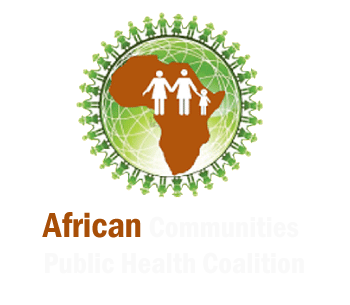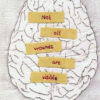Cultural and Social Factors against Mental Health Issues
The understanding and acceptance of mental health issues is highly dependent on the cultural norms, practices, and family and friends dynamics an individual surrounds themselves with. Unfortunately, in Black communities, acknowledging that one has mental health needs is considered as a sign of weakness and possibly a threat to one’s reputation within their community. Some may feel that if their mental illnesses are known, that one may be portrayed as “Unable” and stigmatized by not only one’s own peers but in some instances, society as a whole.
An article by social worker Amy Morin, states that a big part of the stigmatization of mental illness within the black communities is not only caused by cultural pressures, but it may also stem from systemic racism. It’s uncommon for mental health practices to be inclusive within mental health service providers as they lack diverse cultural understanding.
African Americans are unfortunately 20% more likely to experience distress due to mental health issues during their adulthood and statistically only 1 in 3 African Americans actually seek mental health services to combat their mental health struggles. A public opinion poll conducted in 1990 showed that only 30% of African Americans thought depression as a medical illness and 60% viewed it as a weakness. As mentioned before, African Americans already face racial discrimination and are stereotyped in a negative way by social structures including within the workplace, schools, and in health facilities. In Fear of being further discriminated against, many prefer not to acknowledge their mental health illnesses, downplay the severity of their needs, or try to self-treat their illnesses and struggles using substances such as alcohol, tobacco, and other illicit drugs.
Black Youth
The COVID pandemic in the past two years has particularly affected black youth and their mental health due to the lack of resources available to them and the lack of understanding of their experiences through systemic racism within education and health facilities. According to Carolyn Jones’ article on black youth mental health statistics, “12 of every 100,000 Black 18-24-year-olds died by suicide in 2020,” The current pandemic has caused grief over loss of loved ones, loss of relational connections, and increased difficulty in educational learning which causes mental distress and increased anxiety levels for the fear of failure or being set back. Prior to the pandemic, Black students already faced scrutiny and false diagnosis for any “problem” behaviors, and often did not receive proper mental health assistance or empathy from medical and/or education providers. In fear of being mistreatment or later criminalized, Black students avoid getting help for their mental health due to racial social systems in place. Due to the many changes and restrictions from the COVID pandemic, Black youth/students are in need of mental health assistance now more than ever as they face increased stressors and issues not only at home but at school where youth spend most of their time. To combat this issue, it is important mental health workers, school councilors, educators, and other youth workers practice cultural inclusiveness and increase their social awareness when it comes to youth of color, and especially those who come from highly marginalized neighborhoods/communities (i.e. Black/Brown working-class families). These are groups who are in alarmingly high needs of mental health due to the lack of resources and lack of proper tools that can help Black youth prosper if these tools and resources were available to them. It is also important to recognize when decisions support racial stereotyping and then reconstruct that approach a youth worker is taking when analyzing, diagnosing, and problem-solving with Black youth.
What to take away from this information?
Mental health workers who practice culturally inclusive services are essential in increasing the amount of Black and African Americans receiving the proper help one needs, and empowering them in seeking the help they need without fearing that one will be stigmatized from their peers and the social systems that are supposed to serve everyone equally. It is important to recognize why one may be hesitant in seeking help, and what factors are the cause, starting with school-age individuals from Black and/or immigrant backgrounds who go unsupported from those they should be able to trust. If you or someone you know is in need of mental health services, contact the African Coalition for inclusive and culturally appropriate mental health services.
Article Resources:
USC School of Social Work 2.12.2019 https://dworakpeck.usc.edu/news/why-mental-health-care-stigmatized-black-communities
Very Well Mind “Exploring the Mental Health Stigma in Black Communities” https://www.verywellmind.com/exploring-the-mental-health-stigma-in-black-communities-5078964
Mentalhealthamerica.org https://www.mhanational.org/issues/black-and-african-american-communities-and-mental-health
EdSource Article: https://edsource.org/2022/black-youth-face-rising-rates-of-depression-anxiety-suicide/666405




























